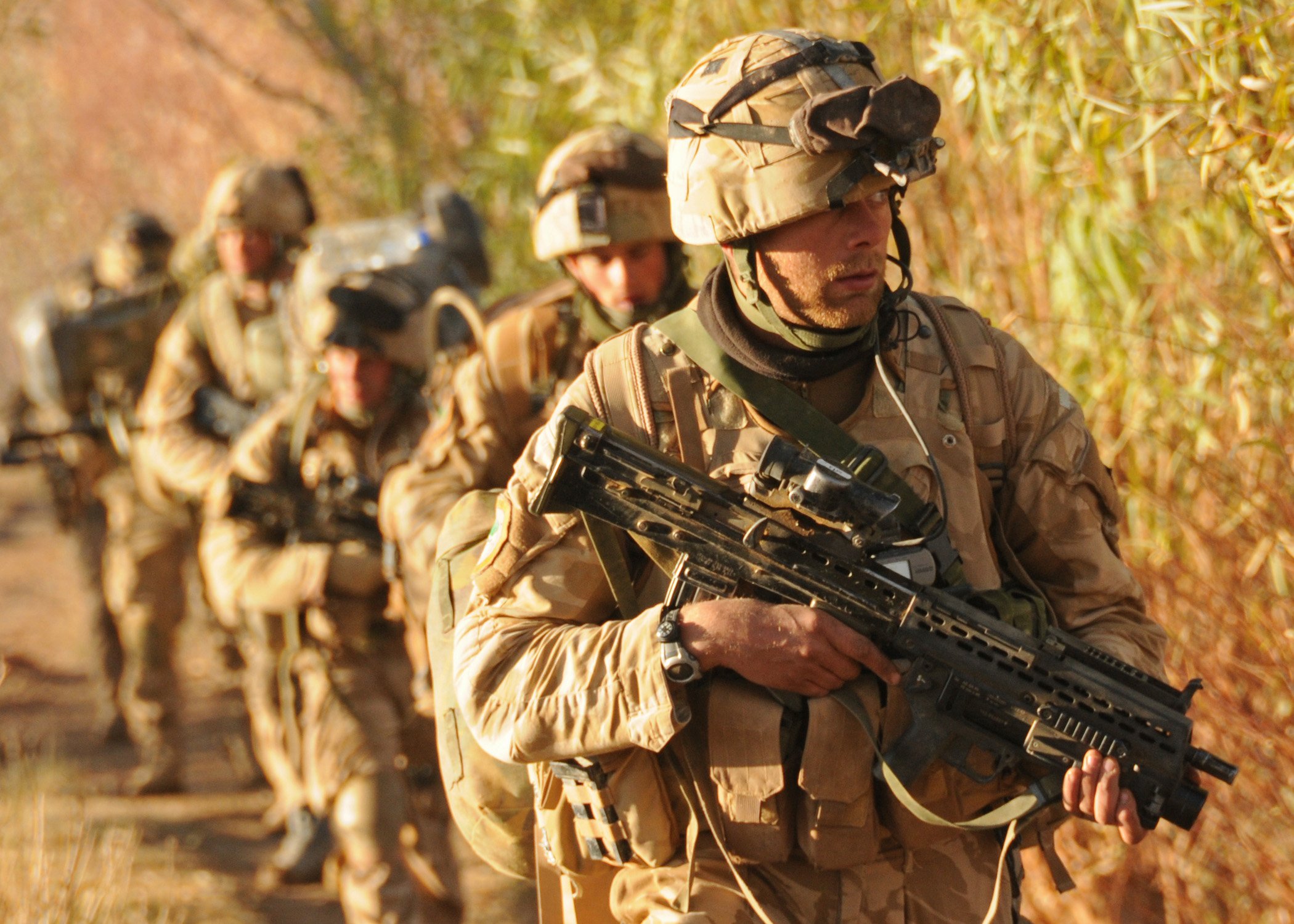
In explaining Britain’s future national security course, one of its most senior defense officials said the country is “no longer that basket case” that it was five years ago when its budget was in a “black hole” and the Defense Ministry was trying to unravel a tangle of programs.
Speaking Thursday at the Atlantic Council, a Washington, D.C., think-tank, Minister of State for the Armed Forces Penny Mordaunt said that then, “the focus was on the kit, equipment” but “we are in a different position now” as Britain works through its latest strategic defense review.
“We have five years to run at that,” she said before Conservative Prime Minister David Cameron would have to call for new elections. Under his government, Mordaunt said, Britain “made a conscious decision” that the country will spend on large defense projects and not on building up presence. “We are able to act independently” noting that this spending makes the U.S. and U.K. more relevant to each other and interoperable when in action.
“We have made commitment on manning” and not just investments in large capital projects, such as an aircraft carrier or other high-end warships and aircraft such as the Joint Strike Fighter. Mordaunt, who as minister of state for the armed forces has operations in her portfolio, said that means re-examining the role of women in the armed forces, providing more flexibility in career paths to allow service members to come and go from active duty, and even part-time service. It also mean “looking at the whole family,” especially spousal employment as keys to attracting and retaining the force it needs now and for the future.
In answer to a question about women’s opportunities in the armed forces, she said, “very few roles are closed off” in the U.K.’s services. Infantry and armor positions are being studied “like [the United States is].” She said in her remarkss that the two female U.S. Army officers who successfully completed Ranger School were an example of what could be done. She added that before opening career fields, any change has to be evidence-based. A follow-up question, she said, was answering “Can a woman at least enjoy an average career?” in those specialties, including command.
A serving Royal Naval Reservist, she witnessed first hand the changes in officer training over the years. One of the ways, Britain is meeting its future manning commitment is through greater employment of reserves. While its army has struggled with this change, “the navy is doing quite well” as is the Royal Air Force.
“We are learning from each other,” Mordaunt said, referring to talks between the United Kingdom and the United States on personnel issues.
On countering the Islamic State (also known as ISIS) by deploying more British forces to Iraq or Syria, she said, “We do not think it would be the right thing.” The emphasis is on local capacity to fight the militants. “It is absolutely necessary that the long-term approach is to build the local forces.”
“We need to learn from previous campaigns” and “ensure [there] is not a vacuum left” when the Islamic militants are pushed back.
In addition to its commitment to the training mission against ISIS, Britain is involved in similar missions in 21 countries. “We are also heading off trouble ahead” in taking on those assignments and realizing “it is not just what the military can do, but development” aid. Mordaunt added, “The best return is getting in early and preventing.”
Beyond those missions, Mordaunt said, Britain’s building of a naval base in Bahrain “is in our national interest. . . . We’re really putting down roots.”
As in the United States, about one percent of the United Kingdom’s population has served in its armed forces. To close a growing civil-military gap, the Cameron government has been pushing communities, businesses and industry to make a covenant with their armed forces.
In a parliamentary report, the covenant is described as a way “to redress the disadvantages that the armed forces may face in comparison with other countrymen and to recognize sacrifices made.”
The starting point, she was “to get communities to feel ownership of their armed forces” and have political leaders spell out the value of that service to the country.
In her address, Mordaunt said the need for the covenant became clear in Great Britain when the public began to question why the country was fighting in Afghanistan and Iraq as casualties mounted and service members were “seen as figures of pity.” The challenge “is to square those competing emotions.”





